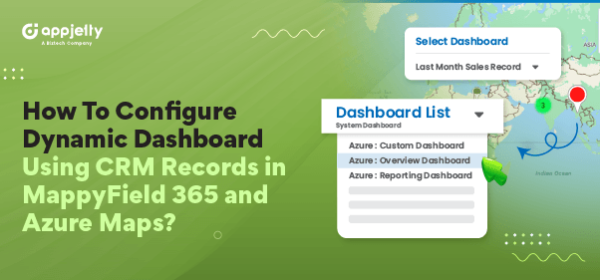With Microsoft Dynamics 365 as your CRM system, your demands for customized functionality and a dynamic user experience are obviously higher. Creating a Dynamics dashboard in Microsoft Dynamics 365 is not just about the setup; it’s about implementing your strategy for business, sales, and services behind it.
Dashboards are one of the most common features for analysis through visualization. AppJetty MappyField 365 – a Dynamics CRM app with Bing Map Integration – provides the functionality to create and design geographical dashboards to display the information exactly how you want to see it and share it with other users as well.
The sales manager, who handles multiple activities at a time, will need analytics to review all records at a glance. They can design a Dynamics dashboard that, once published, will be visible to everyone in the organization.
The dynamic dashboard allows the user to view records based on specific queries. Data can be retrieved using FetchXML queries.
In this blog, we will discuss how to create a custom dashboard using queries. We will select CRM entities and their relevant records according to the business requirement, such as sales activities, leads, pending cases, appointments, etc. Later, you and your team can view the data for that custom dashboard and gain insights about sales activities.
Please follow the steps below:
1. Navigate to the Dashboard Configuration to create a custom dashboard.
2. Insert the entity details and include the generated FetchXML query.
3. Navigate to the MappyField 365 Dashboards and find the MappyField 365 Custom Dashboard.
Step 1: Navigate to MappyField 365
Select ‘MappyField 365’ from the Dynamics 365 dashboard or app list in the header.
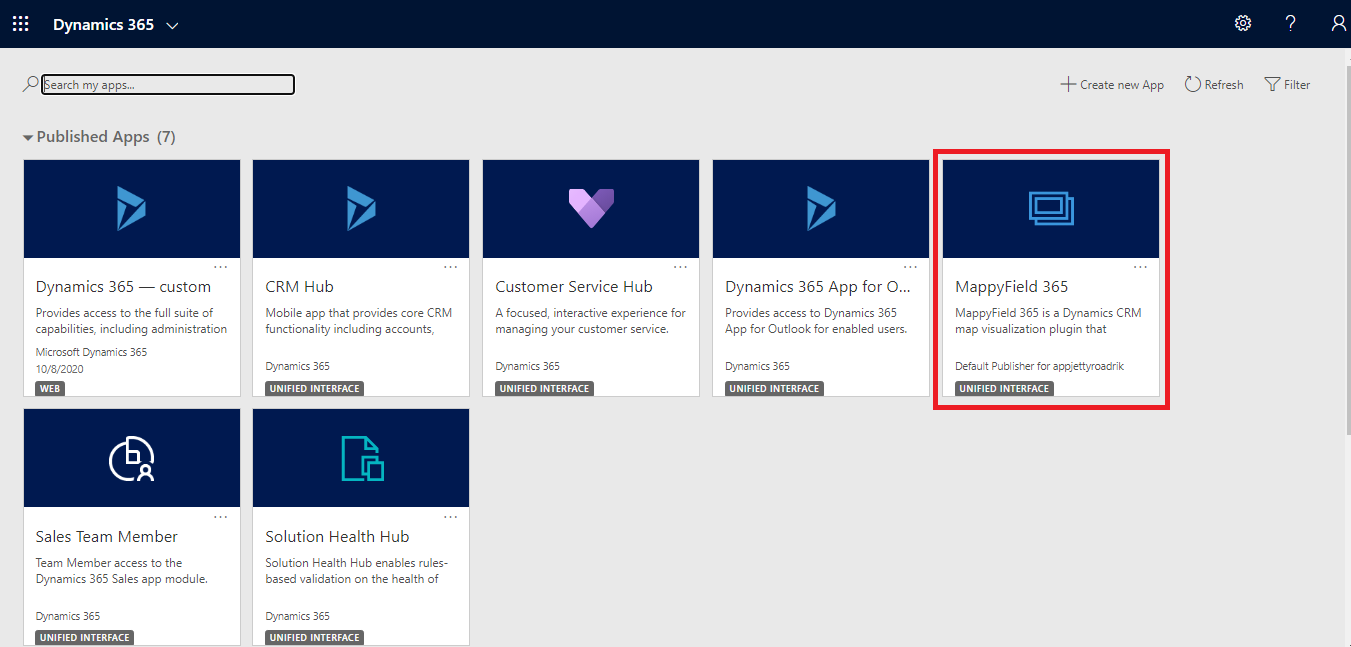
Navigate to the ‘Dashboard Configuration’ in the left-side navigation pane of MappyField 365.
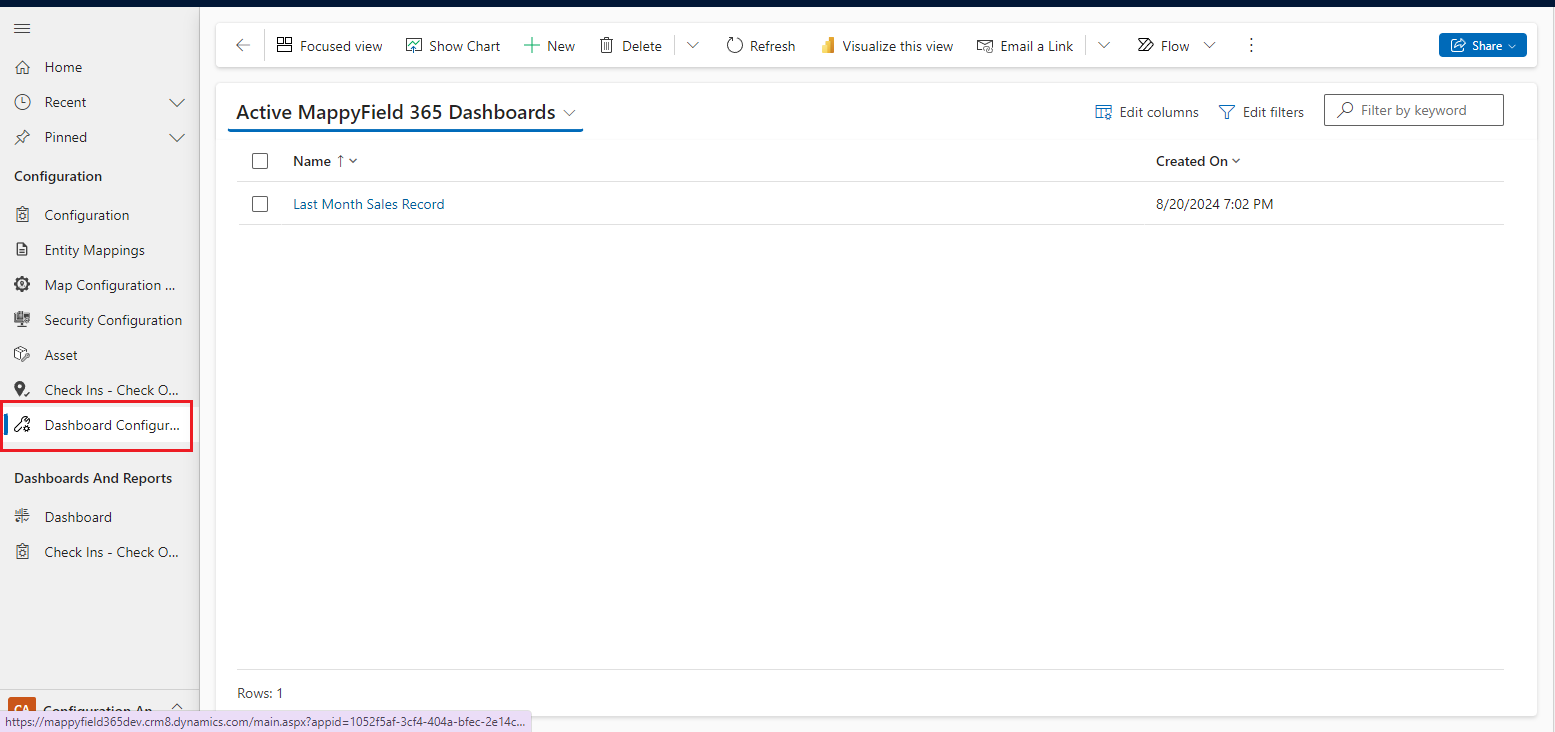
Step 3: New Custom Dashboard
Navigate to the ‘New MappyField 365 Dashboard’ page. From here, you can select the mandatory options and add a query according to your business requirements.
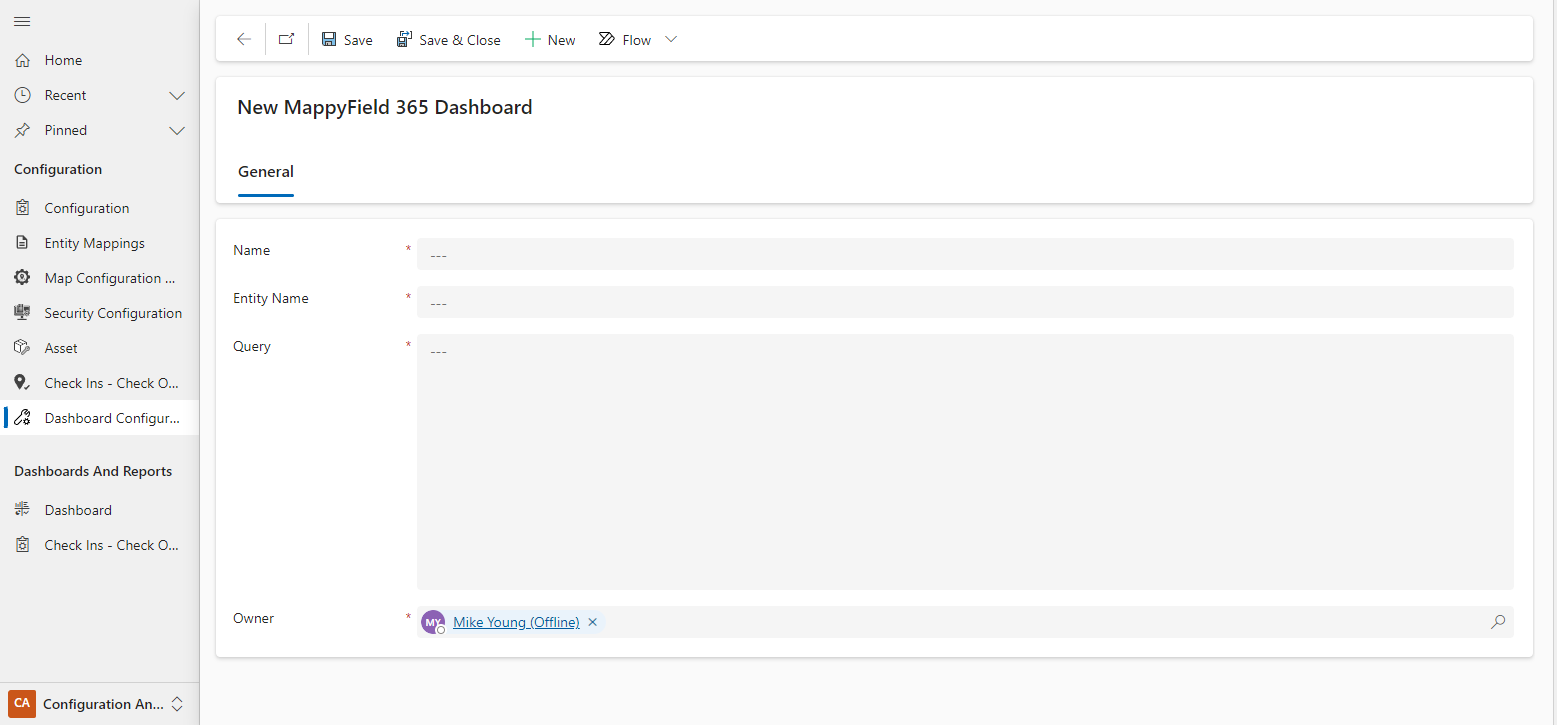
To configure the custom dashboard for last month’s sales record, you need to insert the following details to customize the dashboard:
- Name: Insert a relevant name for the custom dashboard.
- Entity Name: Insert the logical name of the entity for which you are creating the dashboard.
- Query: Insert the FetchXML query of the defined entity.
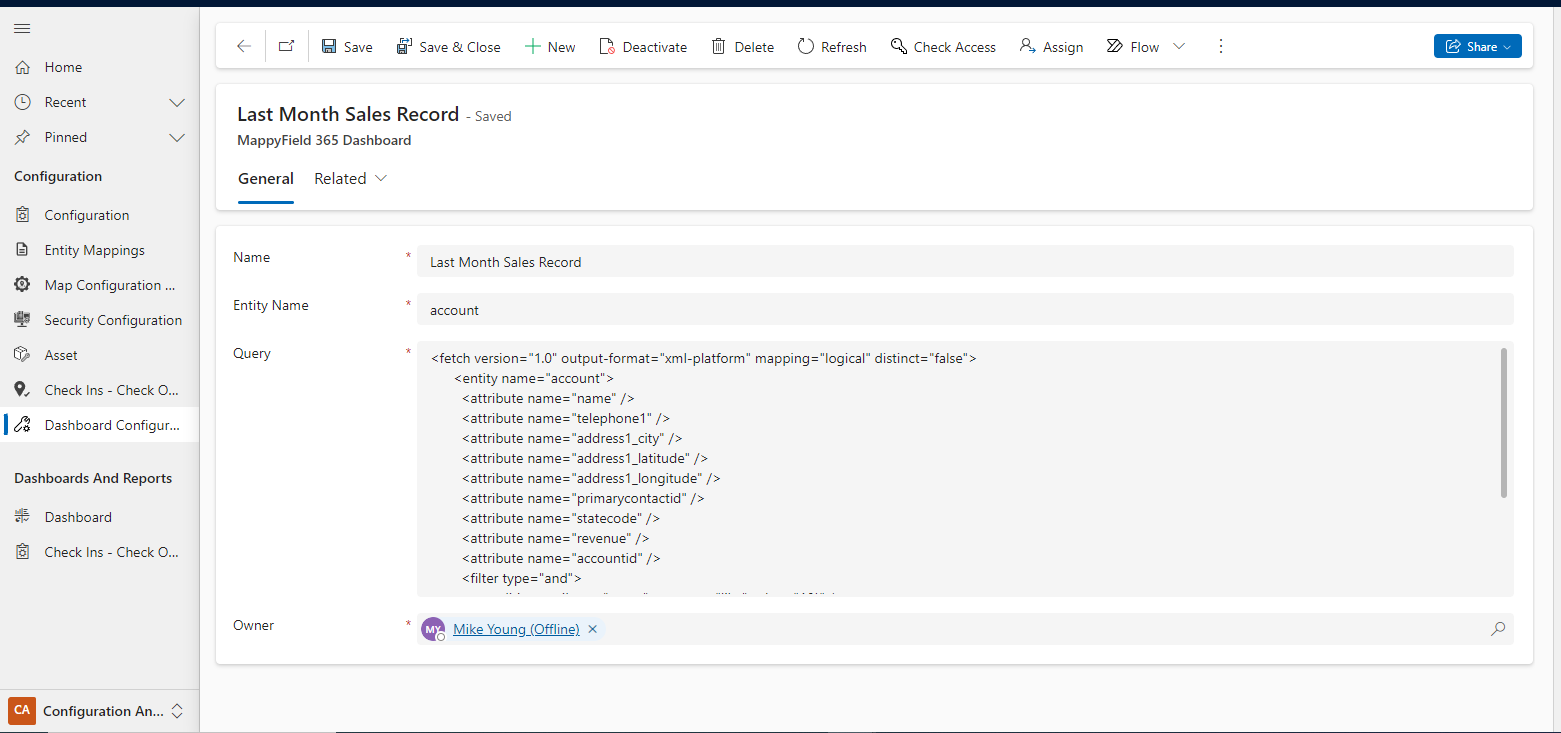
Step 4: Navigate to the MappyField 365 Dashboards
Now, navigate to ‘MappyField 365’ from the navigation map and click on ‘Dashboards.’
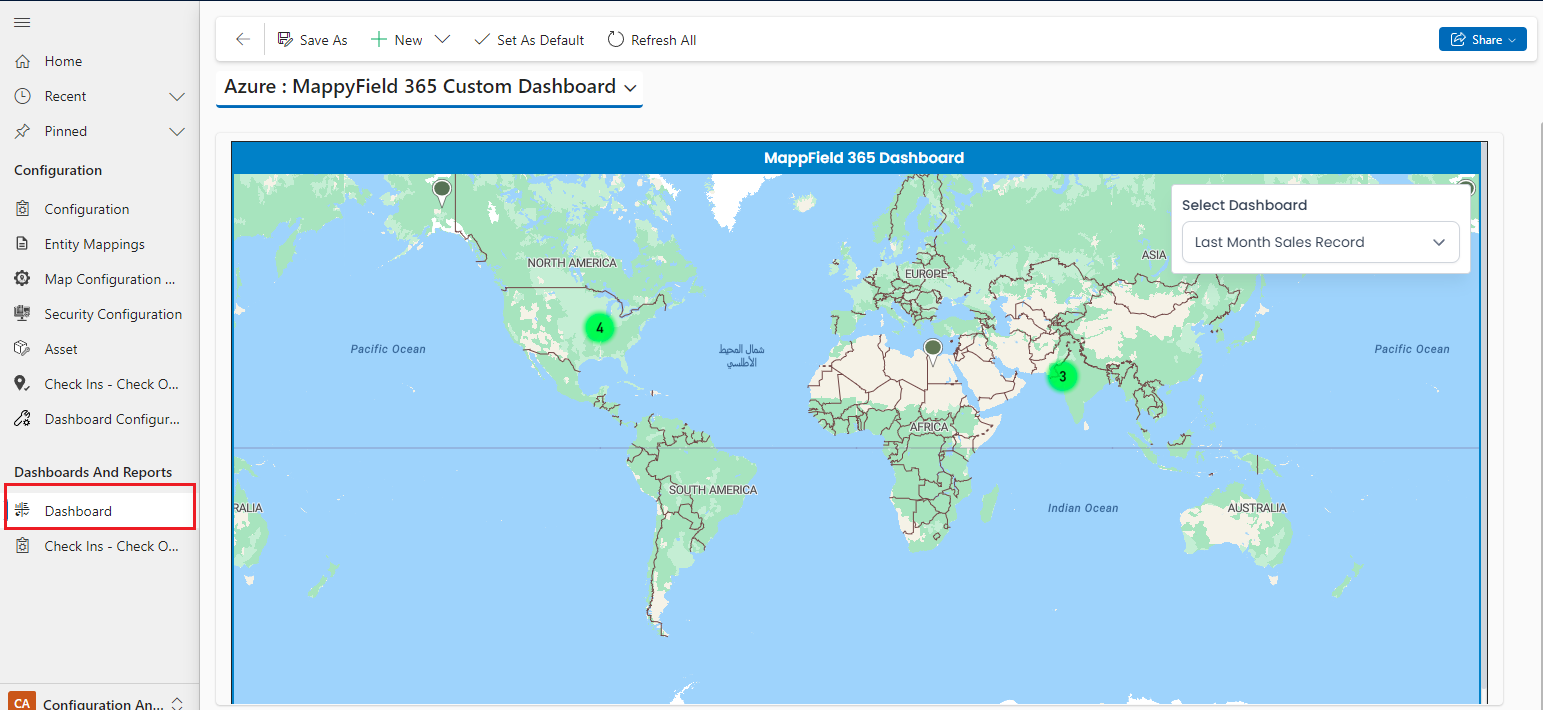
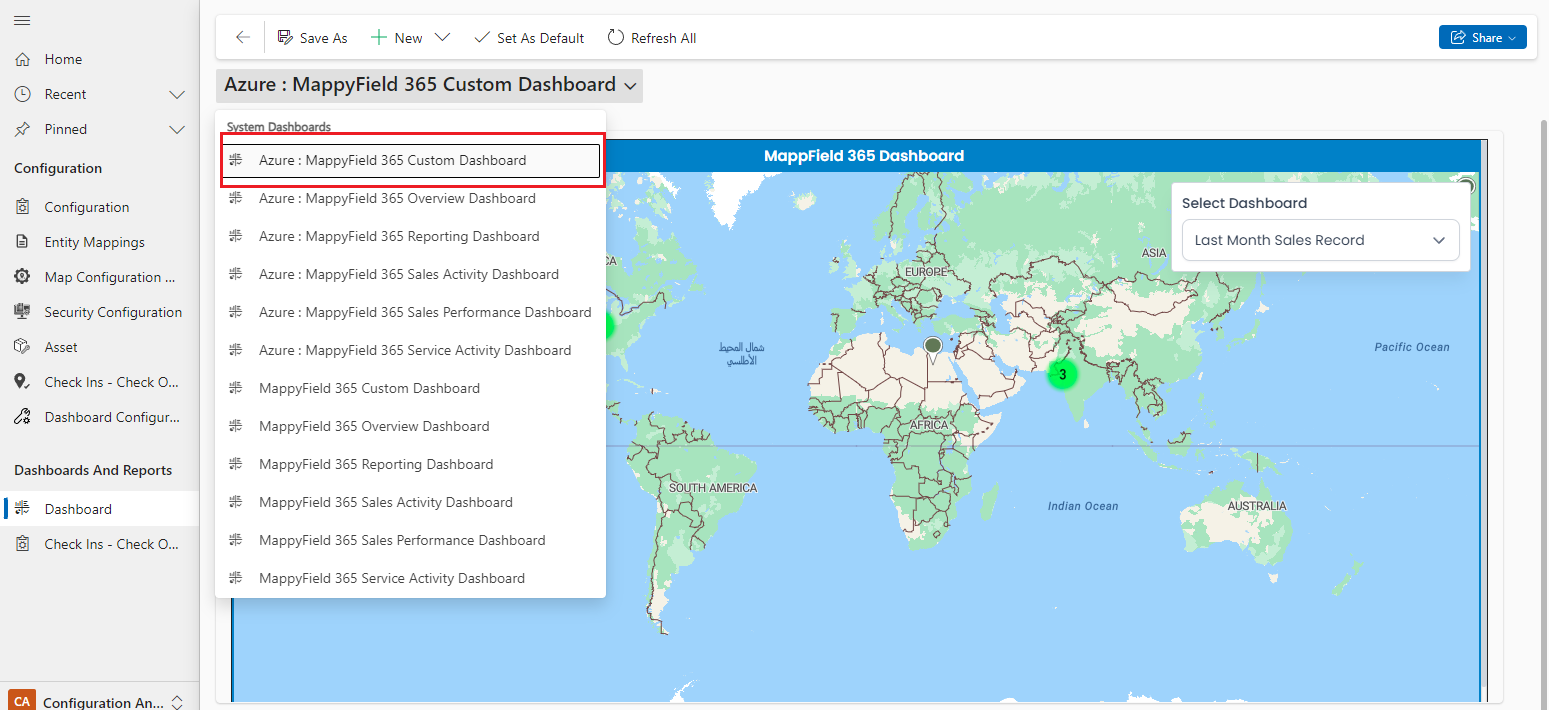
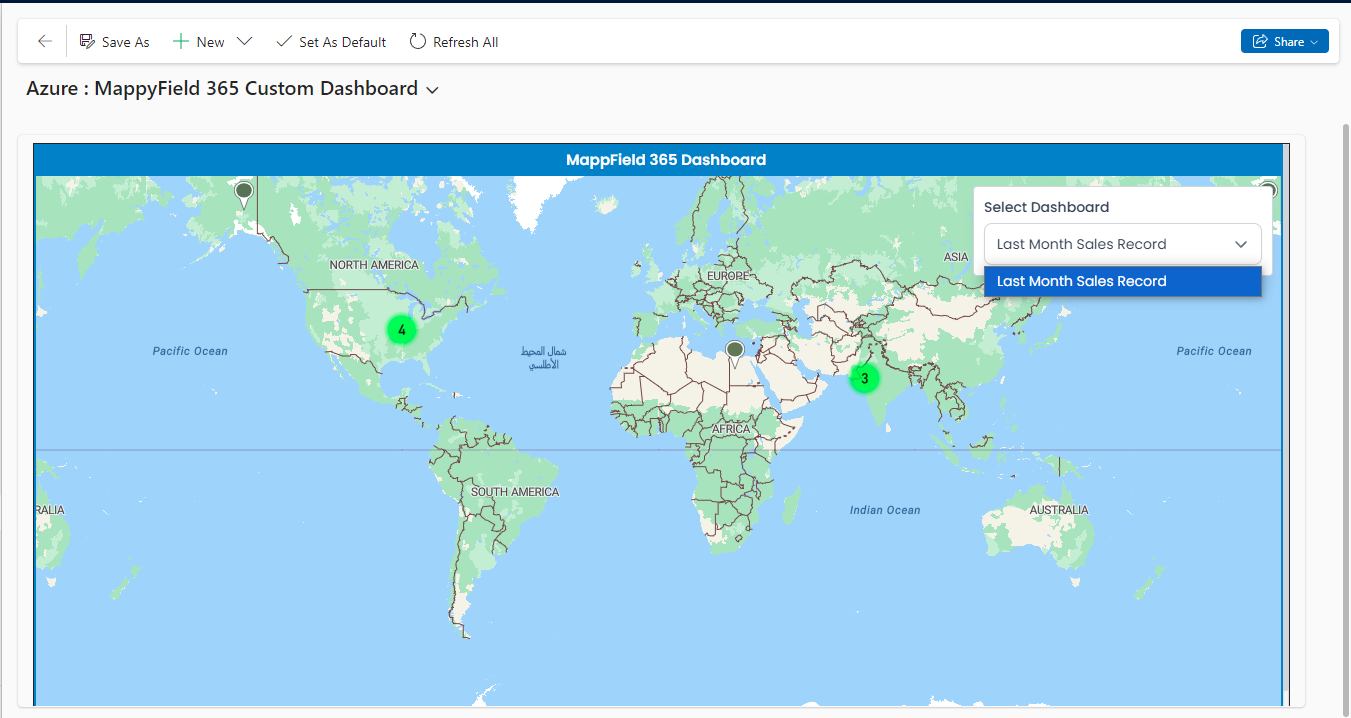
All product and company names are trademarks™, registered® or copyright© trademarks of their respective holders. Use of them does not imply any affiliation with or endorsement by them.


